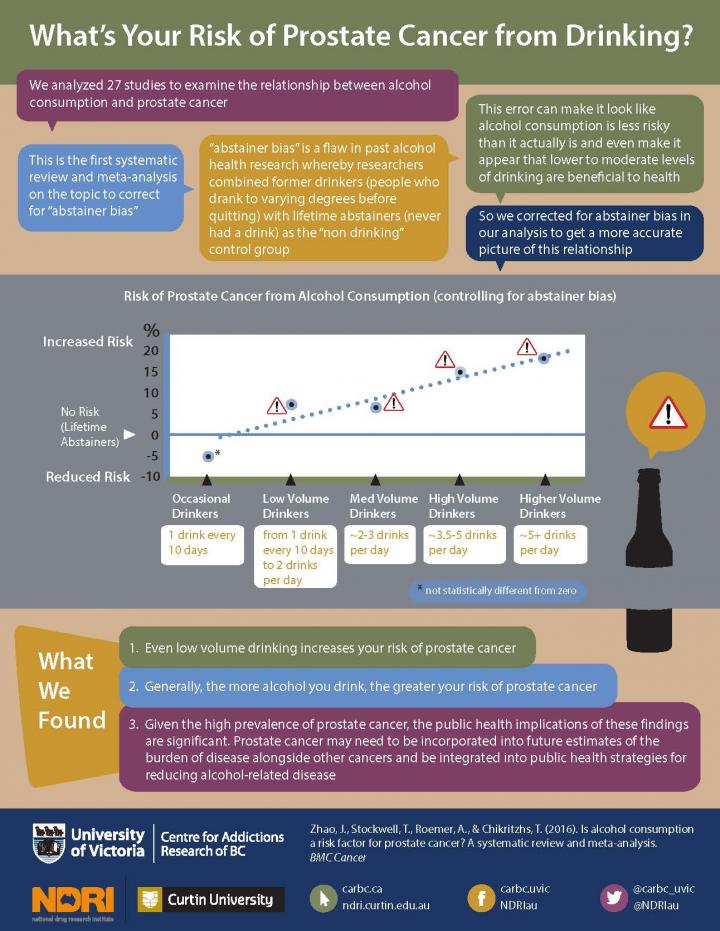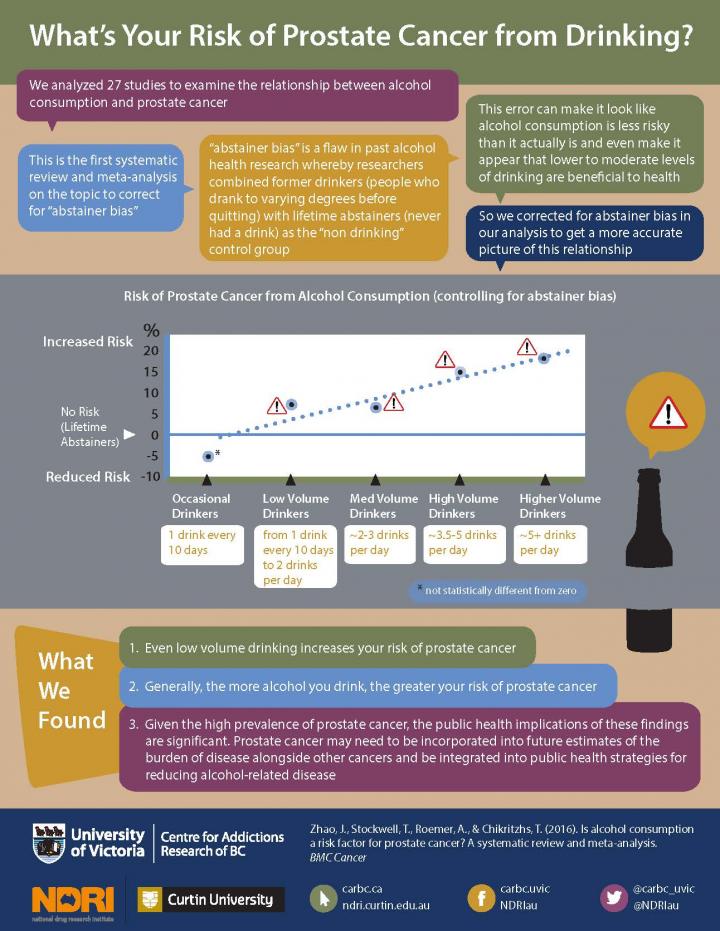
Credit: Centre for Addictions Research of BC at the University of Victoria
Alcohol is known to be a risk factor for breast cancer and at least seven types of cancers of the digestive system. It's also suggested that alcohol may increase the risk of cancers of the skin, pancreas and prostate. But some unresolved questions still remain in the underlying science.
A new collaborative study done by researchers at the Centre for Addictions Research of BC (CARBC) at the University of Victoria and Australia's National Drug Research Institute (NDRI) at Curtin University provides new evidence of a significant relationship between alcohol consumption and the risk of prostate cancer. The article appears in BMC Cancer, a peer-reviewed online journal.
Part of the problem with most previous studies comes from what scientists call "abstainer bias." This is the common practice of lumping together former drinkers — including people who may have previously drank heavily, but quit or cut down due to failing health — with those who have abstained from drinking alcohol for their whole lives. This practice can disguise the association between alcohol intake and health problems like prostate cancer by making drinkers "look good" in comparison with a group containing unhealthy former drinkers.
The research team identified all previously published studies on alcohol and prostate cancer (340) and found 27 that attempted to measure the risk at different levels of consumption. Controlling for abstainer bias in their analysis of all 27 studies, they found a statistically significant dose-response relationship between amount of alcohol consumed and risk of prostate cancer among current drinkers.
In other words, the more you drink, the greater your risk of prostate cancer.
Even at low-volume drinking (up to two drinks per day), men had an eight per cent greater risk of prostate cancer compared to lifetime abstainers. But when the researchers examined only those six studies that were originally free of abstainer bias, the risk for low volume drinkers rose to 23 per cent.
Given the high prevalence of prostate cancer, especially in the developed world, the public health implications of these fi¬ndings are signifi¬cant. It is the most commonly diagnosed cancer in men in Canada, Australia and Britain, and is the fifth most common cause of cancer death in men worldwide.
"This new study contributes to the strengthening evidence that alcohol consumption is a risk factor for prostate cancer. Alcohol's contribution to prostate cancer will need to be factored in to future estimates of the global burden of disease," said UVic's CARBC director and co-author Dr. Tim Stockwell.
This month is "Movember," a campaign that originated in Australia to raise funds and awareness of prostate and testicular cancer and men's health in general. The week of Nov.16 – 22 is National Alcohol Awareness Week in the UK and National Addictions Awareness Week in Canada.
"These findings highlight the need for better methods in research on alcohol and health," says report co-author Dr. Tanya Chikritzhs. "Past and future studies that demonstrate protection from disease due to low-level drinking should be treated with caution."
###
Study co-authors include Dr. Jinhui Zhao and Audra Roemer (MSc research assistant) from the University of Victoria.
Media contacts:
Tim Stockwell
Director, Centre for Addictions Research of BC, University of Victoria
250-472-5445
[email protected]
Tanya Chikritzhs
Professor, National Drug Research Institute
[email protected]
Suzanne Ahearne
University Communications + Marketing
250-721-6139
[email protected]
Media Contact
Suzanne Ahearne
[email protected]
250-721-6139
http://www.uvic.ca
############
Story Source: Materials provided by Scienmag





